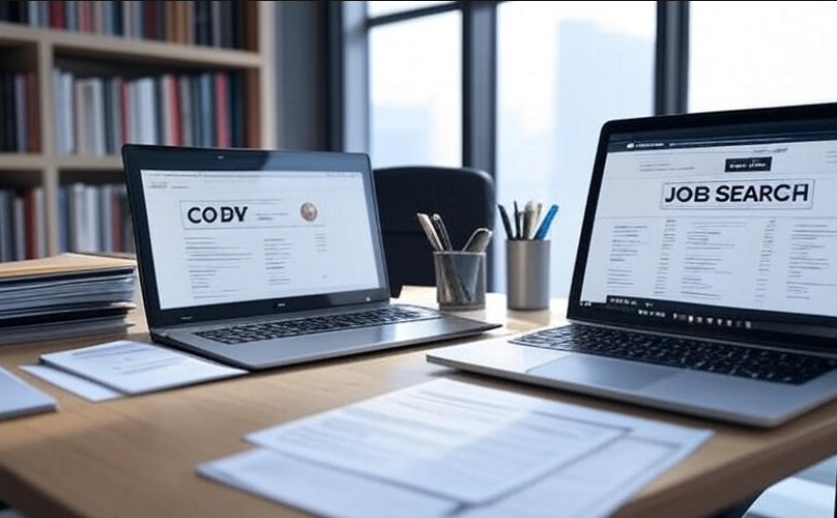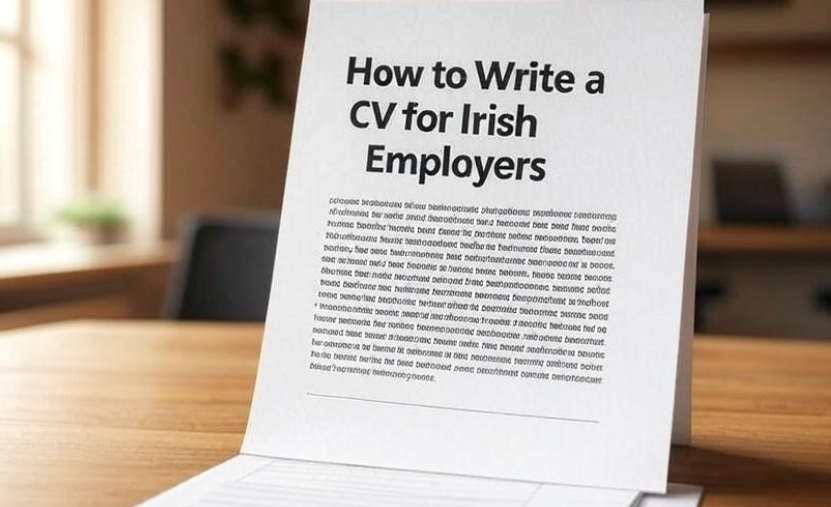Starting your career journey in Ireland with an internship can open a lot of doors. Internships are not just about work experience; they are about building confidence, networking, and understanding how the job market works. But landing one can sometimes feel overwhelming, especially if you’re new to Ireland or just stepping into the professional world.
Below, I’ll walk you through practical steps, useful resources, and little hacks that can really make a difference. I’ve kept the language simple and conversational so you can easily follow along.
Why internships matter in Ireland
Internships are not just a formality in Ireland. Many employers use them as a way to test future employees before offering full-time roles. A good internship can help you:
-
Build relevant industry skills
-
Gain Irish work culture experience
-
Expand your professional network
-
Make your CV more attractive to local employers
It’s also worth noting that internships in Ireland are often competitive, so you’ll need a smart approach.
Know the types of internships available
Before applying, you should understand what kind of internships exist. Some are paid, some are unpaid, and some are part of university programs.
Here’s a quick breakdown:
| Type of Internship | Details | Best For |
|---|---|---|
| Paid Internships | Offer a monthly salary or stipend | Students/graduates needing financial support |
| Unpaid Internships | Usually in small companies or NGOs, sometimes part-time | Those seeking experience only |
| Summer Internships | Short-term (8–12 weeks) during summer | Students wanting seasonal experience |
| Graduate Internships | Often transition into full-time jobs | Fresh graduates looking for career entry |
| Remote Internships | Online/virtual opportunities | International students or those outside big cities |
Where to find internships in Ireland
One of the most common mistakes people make is relying on just one source. Ireland has a variety of platforms and places you can explore.
-
Job websites: IrishJobs.ie, GradIreland.com, Jobs.ie, and Indeed.ie
-
University career portals: If you’re studying, most universities have dedicated portals with postings from partnered companies
-
LinkedIn: A very strong platform in Ireland where employers post opportunities and also scout potential candidates
-
Networking events: Job fairs, tech meetups, or even student events often lead to internship offers
-
Direct company websites: Big names like Google, Microsoft, Accenture, and Deloitte often post structured internship programs
💡 Tip: Don’t just apply online. If you reach out directly to HR managers or recruiters, you often stand out more than someone who only submitted a CV online.
How to prepare your CV and cover letter
Your CV is usually the first impression an employer gets. Keep it short (no more than two pages), clear, and tailored for the internship.
Key things to include:
-
Education details (highlight relevant modules or coursework)
-
Skills (technical, communication, teamwork)
-
Previous experience (part-time jobs, volunteering, group projects)
-
Achievements (scholarships, awards, certifications)
The cover letter is where you show a personal touch. Write it in a way that explains why you’re excited about the company and how you can contribute. Keep it human, not robotic. For example:
-
Instead of saying “I am highly motivated to gain experience in…” try “I’ve always been curious about how companies like yours… and I’d love to learn by contributing to your team.”
Networking can make a big difference
In Ireland, people really value personal connections. Many internships are filled before they’re even advertised because someone in the company recommended a candidate.
Ways to network:
-
Attend university career fairs
-
Join student societies or professional groups
-
Connect with alumni on LinkedIn
-
Don’t be shy to send polite messages to professionals in your field
Sometimes, even a short coffee chat with someone can lead to an internship recommendation. ☕

Be ready for the interview
If you get called for an interview, congrats! Now you need to prepare smartly.
-
Research the company: Know what they do, their recent projects, and their work culture
-
Practice common questions:
-
“Why do you want to intern with us?”
-
“What skills can you bring to this role?”
-
“Where do you see yourself in 5 years?”
-
-
Prepare your own questions: Employers like it when you show genuine curiosity
-
Keep answers clear and to the point, don’t overcomplicate things
And don’t forget the basics—dress neatly, be on time, and smile. A friendly attitude goes a long way in Ireland.
Balancing studies and internships
If you’re a student, one concern is balancing classes with internship duties. Some internships require part-time work, while others may be full-time during summer.
You can manage better by:
-
Choosing flexible internships
-
Using online tools like Google Calendar to schedule tasks
-
Talking openly with your employer about your availability
Challenges international students face
If you’re coming from abroad, there may be some extra steps:
-
Visa rules: Non-EU students usually need permission to work. Check the Irish Naturalisation and Immigration Service (INIS) website for details.
-
Language and communication: While English is the main language, Irish workplaces often use casual and quick communication. Try to practice everyday English phrases.
-
Adapting to culture: Irish workplaces are usually friendly but informal. Don’t be surprised if people start conversations about sports or the weather during work.
Quick Dos and Don’ts for internships in Ireland
| ✅ Do | ❌ Don’t |
|---|---|
| Tailor your CV for each application | Send the same CV everywhere |
| Apply early (some close 6 months before) | Wait until the last moment |
| Follow up politely after applying | Spam recruiters with messages |
| Network actively | Only rely on job boards |
| Be open to learning | Expect only glamorous tasks |
Realistic expectations
Let’s be real—internships aren’t always glamorous. Sometimes you’ll be making coffee or updating spreadsheets. But the key is attitude. Employers often test whether you’re willing to do small tasks before trusting you with bigger ones. Think of it as a learning curve.
Final thoughts
Landing an internship in Ireland is not impossible if you approach it step by step. Start early, use multiple sources, keep your documents sharp, and most importantly—network. A small opportunity can lead to a bigger career path if you treat it seriously.
FAQs
1. Are internships in Ireland usually paid?
Not always. Big companies usually pay, but small businesses or NGOs may not.
2. Can international students do internships?
Yes, but it depends on your visa type. Non-EU students need to follow work-permit rules.
3. When should I apply for summer internships?
The best time is between September and January, as many programs close applications early.
4. Do Irish companies prefer local students?
Not necessarily. If you have the right skills and show enthusiasm, you stand a good chance.
5. Can an internship turn into a job?
Yes! Many companies in Ireland use internships as a trial period before offering full-time roles.




